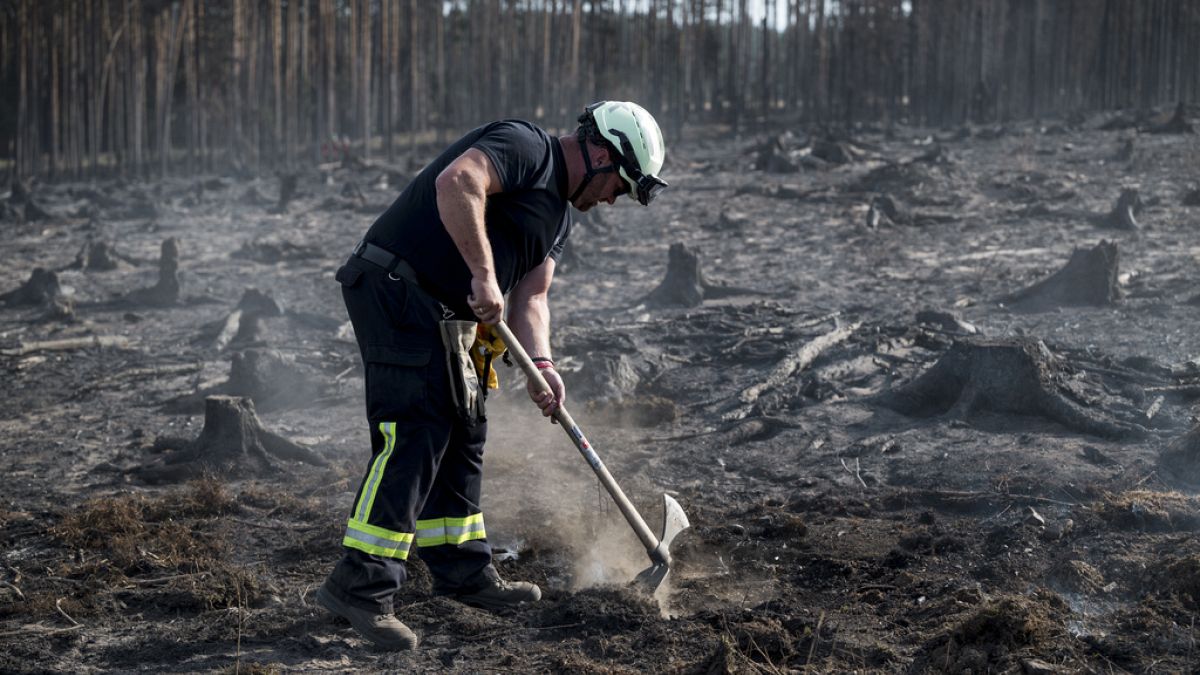

Across Europe, a determined effort is underway to combat a series of wildfires, with notable blazes affecting areas in Germany, Greece, and Turkey. Firefighters are laboring tirelessly, showcasing courage and resilience as they work to secure communities and natural landscapes from the advancing flames. This collaborative endeavor underscores the interconnected challenges posed by climate change, which experts increasingly cite as a catalyst for such extreme weather events. As temperatures rise, Europe finds itself on the frontline, confronting these climatic shifts with coordinated action.
The rising frequency of wildfires serves as a poignant reminder of the broader impacts of climate change. According to noted experts, climate change is not merely an environmental issue but one that impacts social and economic dimensions. The Mediterranean nations of Spain, Morocco, and Turkey are frequently highlighted as emblematic of the drought challenges facing the region. They serve as “canaries in the coal mine,” signaling the potential future for other areas as climate stressors intensify.
Results from a landmark survey reveal that drought is more than transient; it can precipitate a cascade of emergencies across various sectors. The European landscape, renowned for its cultural and ecological diversity, now faces the added layer of adapting to environmental pressures that reshape agricultural practices, water resource management, and public health strategies. As these areas brace for prolonged dry spells and heatwaves, communities are called to adapt with innovative, sustainable solutions.
Such adaptation is necessary in light of the striking data from a report by the EU’s Copernicus Climate Change Service. It highlights that, since the 1980s, Europe has been experiencing climate warming at twice the global average rate, making it the continent with the fastest temperature rise. This accelerated change calls for urgent attention and action, not only to mitigate current impacts but to build resilience for the future.
In terms of human impact, the heat is tangible in more ways than one. The European Trade Union Confederation has noted a significant 42% increase in heat-related deaths at workplaces across the EU since 2000. This troubling statistic emphasizes the need for enhanced protective measures for workers exposed to high temperatures. The trade union calls for common rules across the European Union aimed at securing workers’ health during these intense heatwaves, underscoring the importance of health, safety, and welfare in the context of a changing climate.
Efforts to mitigate these impacts are continually underway. Communities, national governments, and international consortia are pooling their resources to foster infrastructure that can withstand extreme weather scenarios. This involves not only immediate firefighting and emergency responses but also long-term planning that integrates climate resilience into urban and rural development. Part of this solution-oriented approach includes enhancing public awareness about climate change, encouraging sustainable practices, and supporting research and development for climate adaptation technologies.
The recent wildfires in Greece and Turkey have prompted necessary evacuations and emergency responses, illustrating the immediate human and environmental implications of these phenomena. Firefighters and emergency teams are mobilized to ensure the safety and security of affected populations, devising strategic plans to extinguish the flames and reduce risks. Amidst these trials, the spirit of cooperation and resolve shines through, as neighboring nations extend assistance and resources to bolster these efforts.
Looking forward, it is clear that a collaborative, multidisciplinary approach is pivotal in navigating these climate challenges. Whether it’s through shared expertise in firefighting techniques, cross-border collaborations on water management, or mutual support in implementing climate action policies, the interconnectedness of our global community is increasingly evident. Through shared wisdom and joint action, Europe and indeed the world can face the reality of climate change with determination, hope, and a commitment to a sustainable future.
Despite the daunting challenges, there is an underlying optimism that through mindful planning and cooperative effort, the path to a resilient future is attainable. The current circumstances serve as a powerful impetus to act, reminding us that even amidst adversity, there lies the opportunity for growth, innovation, and positive transformation. As societies rise to these challenges, they do so with the acknowledgment of the intricate balance of our global ecosystem and the steps necessary to preserve it for generations to come.
Source: {link}
